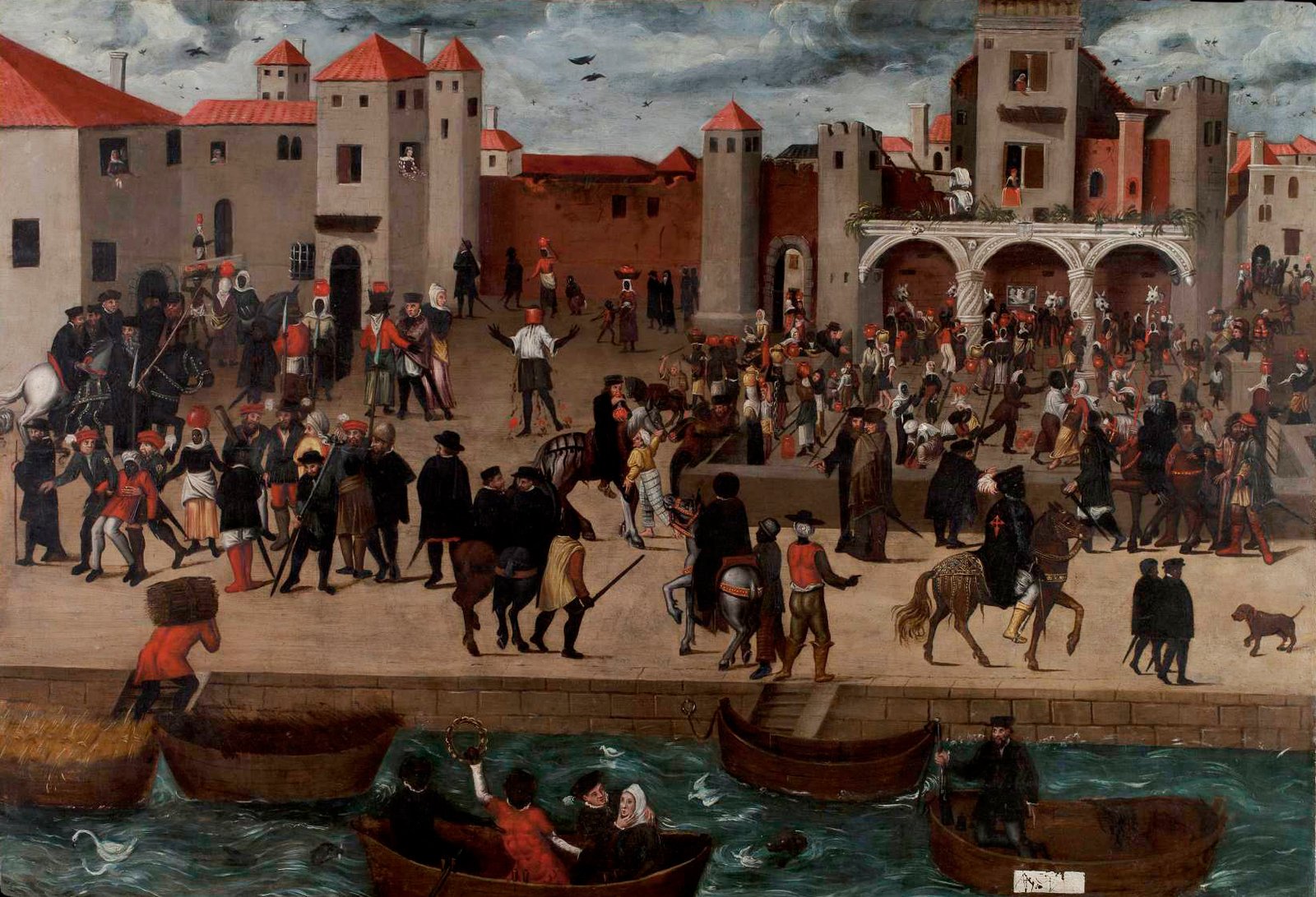Trans Atlantic Slave Trade encompasses Cape de Verde Islands

Because of Antonio Pereira Vitorino de Barros claim that he was born in Cape de Verde and his acknowledgement of goods transportation within the ‘Triangle Trade‘ route, it is pertinent to include a brief outline of this African trade, which fits together with the prosperity of the Cape Verde Islands. Expanding greatly with the development of labor intensive plantations growing sugar, cotton and tobacco in the Caribbean and America, the Portuguese enforce a monopoly of the transport of African slaves to their own colony of Brazil. But other nations with transatlantic interests soon become the main visitors to the Slave Coast.
By the 18th century the majority of the ships carrying out this appalling commerce are British. They waste no part of their journey, having evolved the procedure known as the triangular trade, they turn the Trans Atlantic Slave Trade into a monumental enterprise of biblical proportions.
Furthermore, for those interested in going further down the rabbit hole, additional insights can be obtained with regard to the nature of Portuguese tendencies to embrace colonialism and slavery. There is a very interesting book that will serve to open ones eyes greatly.

A. Saunders
Paperback
Originally published in 1982, was the first detailed study of black slavery in Portugal during the fifteenth and sixteenth centuries, when the Portuguese brought Europe into contact with black Africa and originated the Atlantic slave-trade. Portugal was the first European society to have a considerable black population, and the relations established between the white and black populations set a pattern that had effects throughout the Atlantic world. Through extensive analysis, this book sheds light on Portuguese slave laws, geographical distribution and the occupations of slaves with Portugal, the importance of slaves in urban and domestic workforce, and Portuguese racial prejudice, and places the racial relations within the wider contexts of slavery and race relations in the Mediterranean and the Americas. Students interested in slavery and race relations as well to students of European, Latin American and African history will find this useful.
- A Social History of Black Slaves and Freedmen in Portugal, 1441–1555
(ISBN-13: 9780521130035)
